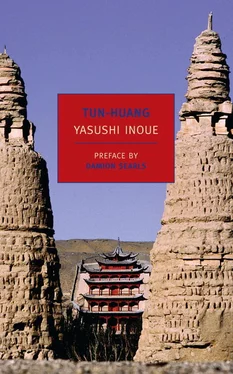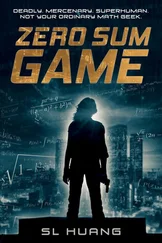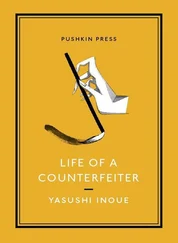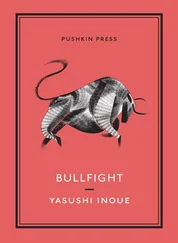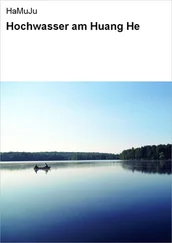Hsing-te was not at all sleepy, but he lay on his bed and closed his eyes. He decided to spend his time like this until dawn, when his unit was to set off. This would probably be the last time in his life he would have time to rest. Hsing-te mused on this. The night was still. It was the quietest night that he had ever spent, and the silence, which seemed to penetrate the very marrow of his bones, was oppressive.
Hsing-te recalled the gay streets of K’ai-feng, the Chinese capital. Along the wide streets in the capital, men and women in all their finery had mingled. Imperial carriages rolled by, and dust-free breezes blew along the elm-lined streets. There were shops selling everything and rows of restaurants catering for all types of banquets and parties. The bustling quarters of East Corner Tower; the market-places selling cloth, paintings, scrolls, jewelry, and all kinds of expensive items — even sheep’s heads; the theatre district, where more than fifty theatre stalls were jammed together… Imperial Street…Barbarian Tower Road…Suan-tsao Gate…
Hsing-te unconsciously moaned softly. It was not that he was homesick for K’ai-feng, nor that he wanted to return, but as he thought of the thousands of miles between him and K’ai-feng, he suddenly felt faint. How far away it was! Why had this happened to him?
He mused over what had brought him here. But he could think of no undue pressures on him, nor any strong influence other than his own free choice. Just as water flows from higher to lower levels, he, too, had merely followed the natural course of events. After leaving K’ai-feng and entering the western hinterlands, he had participated in battles all over the frontiers as a member of the Hsi-hsia army; he had finally become a member of the insurrectionists, who had conspired with the Chinese in Sha-chou and were about to enter a death struggle with the Hsi-hsia army. If he could relive his life, he would probably travel the same route given the same circumstances. In that sense, Hsing-te felt no regrets about dying in the destruction of Sha-chou. There was nothing for him to regret. He had spent many months and years drifting across the gentle slopes across the thousands of miles from K’ai-feng to Sha-chou, and now found himself lying down thinking about it. Not once had he entertained the desire to return to K’ai-feng. If he had wanted to return but had not, he might bemoan the lost opportunity, but he had come to the frontiers because it was his choice. It was only natural that he should remain, and he had.
As he lay there, absorbed in these reminiscences, he heard a knock at his door. Hsing-te pushed aside his reveries and rose from his bed. A soldier told him that Wang-li wished to see him, and left.
When Hsing-te arrived at the elderly commander’s quarters, about two blocks away, Wang-li came out in full military attire. Seeing Hsing-te, he said, “There is a report that the Hsi-hsia vanguard is approaching. It has come from Hsien-shun, who is out in the front lines. I’ll leave immediately with the troops in the town. Our total military forces combined with Hsien-shun’s army are negligible compared to the overwhelming numbers in the Hsi-hsia army. We are no match for them. Nevertheless, the outcome remains uncertain. The reason for this is that I shall give my all in this attack of Yüan-hao’s headquarters. No matter what happens, I must take Yüan-hao’s head. If Yüan-hao dies, the Hsi-hsia army will certainly collapse.”
After he had spoken, Wang-li looked intently at Hsing-te. “You’ll have to build a memorial for me,” he added. “Erect an enormous stone monument that one must look up to. I haven’t forgotten the vow we made each other years ago. The honor of building a memorial is still yours. You must survive so that you can build the memorial to me.”
“Then I won’t go to the battlefield?” asked Hsing-te.
“A person like you won’t be of much help in the front lines. I’ll give you three hundred defense troops. Stay here and wait for news of victory.”
“I’d rather join the fighting than stay behind. I’d like to see how you really fight when you stake your life on it,” said Hsing-te. He actually did want to see this fearless commander in action when he did his utmost. “I’ve been in many battles, and have never been cowardly.”
“Fool!” Wang-li bellowed in his usual hoarse voice. “This battle will be different from any of the previous ones. I know very well that you don’t fear death. You, even more than I, think nothing of death. Many times you have surprised me with your audacity. But I just can’t have you join us. Stay here at the garrison. These are Wang-li’s orders!”
After this, Wang-li started to walk off. Hsing-te walked beside him, but no longer touched on the subject of whether or not he should remain in the walled city.
Apparently, orders to assemble had been given, for soldiers were already rushing to the meeting place. As Hsing-te and Wang-li approached the square the number of men gradually increased.
The speech was short. Wang-li, leading a force of more than one thousand troops, left by the East Gate. Hsing-te and his three hundred men went to the gate to see the men off. To him, Wang-li’s army appeared somewhat spiritless. They could not compare with the unit that had served under the old commander as the vanguard of the Hsi-hsia army. Over half the present forces were Yen-hui’s men, with poor training and no war experience; the attack by the Hsi-hsia’s flaming arrows at Kua-chou had been their initiation in warfare, and their retreat from that town had been their only military experience. Wang-li had organized a cavalry unit using the men who had shared his hardships for many years and had created an infantry unit with the Kua-chou soldiers. The air was so cold that the breaths of the men and horses were visible. As soon as the forces had left the gate, they were swallowed up in the dawn darkness.
After Hsing-te had seen Wang-li’s men off, he assembled his three hundred men at the East Gate, established his head-quarters there and divided the men and positioned them at the six city gates.
He then hurried over to the palace to make his report to Yen-hui. The civilian houses on the way to the palace were completely empty and not a single person was in sight. As he passed through the palace gate, the white light of early dawn began to fill the spacious garden, which suddenly took on a look of desolation.
Yen-hui was sunk in his large chair, as on the previous night. It was hard to tell whether he had slept or not. It appeared to Hsing-te that Yen-hui had not left the chair all night.
Hsing-te reported that the Hsi-hsia army was approaching and that Wang-li had already left to encounter them. The time had come for all members of the Ts’ao family to evacuate the city. In his customary reaction to danger, Yen-hui sprang from his seat as though ejected and spoke in a heavy voice, mumbling to himself. “That’s not an easy task.” He started to ask a string of questions: What had happened to his Kua-chou soldiers? What had happened to the civilians?
Hsing-te wondered if Yen-hui had taken leave of his senses. “All the troops have left for battle, the civilian population has been completely evacuated and there’s probably no one left in the city. The only ones here are me and my three hundred men, and outside of that, only you and your family in the palace.”
Hsing-te asked how many were still in the palace. Yen-hui replied that probably there were very few left. A short while before he had walked through the palace and had discovered that the number of attendants had decreased noticeably. In the inner chamber, the abbots of the seventeen temples were continuing their endless conference. That was all.
“And what does Your Highness plan to do?” Hsing-te inquired.
Читать дальше
